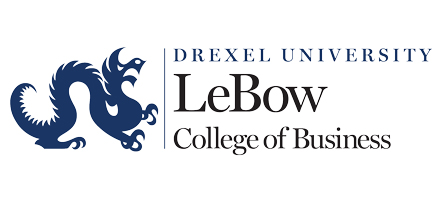Straight up: If you tackle an Executive MBA (EMBA) program at a top tier business school, your next two years will be hell. But at least it’ll be a good, brain-boosting, endorphin-enriched, caffeinated kind of hell.
Been there. Done that. I have a traditional media background, specialized in business, and witnessed publishers struggling with digital transformation. I started or co-founded four businesses in Washington, DC, New York and Los Angeles, wrote six business-related books, and long considered getting an MBA to cope with a media world turned digitally upside down.
So in 2010 I finally went for it – albeit later-career than your average EMBA. I also wanted to set an example for my two sons that learning is a life-long process and sometimes requires sacrifice. And, well, I thought it would be fun.
Proximity-wise, UCLA’s Anderson School of Management was perfect. But there was the small matter of acceptance to its elite, highly-selective EMBA program, ranked #5 worldwide by Bloomberg BusinessWeek. Taking the GMAT after 25+ years out of school was surreal. Studying seemed silly, so I took it cold. In what was surely a fluke, I scored 97th percentile on the verbal side, helping mitigate a queasier quant score.
I joined a 72-member class of the smartest, most-dedicated (and opinionated, I might add) people I’d ever seen in one place. It was a fascinating, diverse group, representing numerous nationalities, industries, professions, and advanced degrees. Beyond that, I’d later learn, they were also great and very caring individuals.
At some point, the class named itself “The Power of 72.” In finance, of course, that’s a quick way to calculate how long it will take an investment to double at a particular rate of return. (Just divide the expected rate into 72.) The moniker fit. Classmates demonstrated repeatedly that working together and feeding off one-another’s ideas produced an informational compounding effect that benefitted everyone.
The program proved hugely challenging, but unequivocally worthwhile. Here are six factors that – in my view – make an EMBA worth the pain and price, as you create intellectual assets that make you a more valuable “human resource.”
1. Excellence Abounds
The admissions folks at Anderson, and I’m sure other top b-schools as well, are pros who skillfully assess and select candidates to achieve a dynamic, diverse group capable of not just the academics, but contributing something more in the process. We had CPAs, engineers, MDs, artists, musicians, investment analysts, attorneys, pilots, entrepreneurs, producers, research scientists, military guys who manage aircraft carriers and others all telling stories, debating points and offering innovative ideas in class sessions, seminars and highly-creative study group presentations, not to mention the not-infrequent happy hours (um, “networking sessions”).
2. Mind-Altering Vibe
The environment at a top b-school is highly energized, and for me, even awe-inspiring. There’s always activity, including nights and weekends, which makes it intellectually stimulating just showing up. Plus you’ll go toe-to-toe with world class faculty who are top thinkers, researchers and practitioners in their fields. At Anderson, for example, it wasn’t unusual to be in class one day and see your professor interviewed on television or quoted in The Wall Street Journal the next.
3. Connections Count
Connections are carrots that all top programs dangle in front of prospects, along with career development services you’d pay richly for elsewhere. Anderson’s career director gets standing ovations. Connections are both short- and long-term assets that will pay dividends for years to come. As to the ubiquitous ROI question, studies show unquestionably that graduates of top tier programs make more money. But instead of ROI, I prefer thinking in terms of ROR – Return on Relationship – an emerging concept in online marketing that calculates value from engaging with others – customers, prospects, contacts, etc. – in an increasingly fragmented digital world.








